Discover The Heart of Healthcare | A Digital Health Podcast
The Heart of Healthcare | A Digital Health Podcast

The Heart of Healthcare | A Digital Health Podcast
Author: Massively Better Healthcare
Subscribed: 11,664Played: 68,366Subscribe
Share
© 2025 Massively Better Healthcare
Description
🏆 #1 podcast in the Top 100 Health Tech All-time charts
Join us every Monday for conversations with the biggest names in digital health. Hosted by digital health veterans Halle Tecco, Michael Esquivel, and Steve Kraus.
Learn more and submit your ideas for the show at the Heart of Healthcare website.
203 Episodes
Reverse
We’re closing out the year with a candid conversation about where America is headed.For our final episode of 2025, Halle and Steve sit down with entrepreneur and former presidential candidate Andrew Yang to talk plainly about the forces reshaping American life, from rising healthcare costs and gaps in coverage to AI-driven job disruption and the strain on the social safety net. We cover:🏛️ Andew’s idea of “Medicare for all who want it”🤖 How AI is already wiping out entry-level jobs, and why he thinks America is heading toward a “bad men problem”💸 Why he ran on Universal Basic Income which he calls “capitalism where income doesn’t start at zero”🏥 How entrenched players restrict physician supply, shape regulation, and protect revenue even when it hurts patients📵 His new effort to cut phone addiction and why he says parents, schools, and policymakers are waking up to the damage caused by screen-first childhoods—About our guest: Andrew Yang is an entrepreneur, author, philanthropist, attorney, nonprofit leader, and former U.S. presidential and New York City mayoral candidate. After a brief stint as a corporate lawyer, he worked in startups and founded an education company that became #1 in the country. He later launched Venture for America, a national nonprofit that empowered thousands of young entrepreneurs to build careers in cities such as Detroit, Cleveland, and Baltimore. Under his leadership, the organization became a multi-million-dollar charity, and Yang was named a Presidential Ambassador of Entrepreneurship and a Champion of Change during the Obama administration.Motivated by the impact of automation on the American workforce, Yang ran for President in 2017. Centered on a proposed $1,000-per-month “Freedom Dividend,” his campaign raised nearly $40 million and helped mainstream conversations around Universal Basic Income. He later founded Humanity Forward, a nonprofit that has successfully advocated for billions of dollars in federal cash relief.Yang is also an author, CNN commentator, and podcast host. He is the son of Taiwanese immigrants, and holds degrees from Brown University and Columbia Law School.—Chapters:00:2:22 Andrew’s Vision for American Healthcare00:7:27 Healthcare and the 2026 Election00:9:59 AI’s Impact on Employment and Society00:22:35 Universal Basic Income 00:29:14 Regulatory Capture in Healthcare00:31:37 Noble Mobile00:33:57 Children and Phone Addictions00:43:19 Closing Advice for Healthcare Innovators—Pre-order Halle's new book, Massively Better Healthcare. —📍 Connect with us:Heart of Healthcare websiteLinkedInInstagramYoutube See Privacy Policy at https://art19.com/privacy and California Privacy Notice at https://art19.com/privacy#do-not-sell-my-info.
Many clinicians quietly wonder if there's a “next chapter” beyond the hospital walls, and an increasing number are stepping into health tech roles that didn’t exist a decade ago.Dr. Reena Pande has lived that shift firsthand: from cardiologist at a top academic center, to early employee and CMO at AbleTo, to now leading clinician executive search at Oxeon. She joins us to unpack what it really takes for clinicians to succeed in startups, why these roles matter more than ever, and how AI is reshaping both medical training and leadership.We cover:🩺 What true self-assessment looks like🚀 What clinicians often misunderstand about joining a Series A startup🐈 The “indoor cat vs. outdoor cat” model for modern clinical leadership📉 How to evaluate risk when moving from academic medicine into early-stage companies📊 Why clinician leaders are central to sales, product, and operations in virtual care🤖 How AI is reshaping medical expertise and what future clinicians must be trained for—About our guest: Dr. Reena Pande is a Partner and leads Oxeon’s Clinician Executive search and leadership practice. She is a physician, entrepreneur, and healthcare executive whose career has focused on building innovative solutions to ensure access to evidence-based, and technology-enabled care. For nearly a decade, Dr. Pande served as Chief Medical Officer at AbleTo, a virtual behavioral health provider. During her tenure, she served as a passionate external voice for bridging the gaps between physical and mental health, and also led clinical product, data science, healthcare economics, and outcomes research teams. Dr. Pande saw the organization through numerous fundraising rounds and eventual acquisition by Optum/UnitedHealth Group.Prior to her time at AbleTo, Dr. Pande was an academic cardiologist and clinical researcher at Brigham and Women’s Hospital in Boston, MA and was on the faculty at Harvard Medical School. She earned her undergraduate degree in Biology from Harvard University, her M.D. from Harvard Medical School, and a Masters degree in Epidemiology from the Harvard School of Public Health. She completed her internship, residency training, and Cardiology fellowship at Brigham and Women’s Hospital.—📚Want more? Read The Clinician’s Guide to Breaking Into Digital Health—Women founders, access a lifetime of community-backed growth with Entreprenerustia: https://refer.entreprenista.com/founder —📍 Connect with us:Heart of Healthcare websiteLinkedInInstagramYoutube See Privacy Policy at https://art19.com/privacy and California Privacy Notice at https://art19.com/privacy#do-not-sell-my-info.
Hemant Taneja believes you can sneeze and reach a billion dollars in healthcare revenue, but that most of that revenue tells you nothing about whether the system is actually getting better.This week, Halle sits down with the CEO of General Catalyst and author of The Transformation Principles to discuss what happens when you stop treating revenue as the primary KPI and start asking harder questions about impact, incentives, and system change. They get into his “health assurance” thesis, what it means for a VC firm to buy a hospital, why “profit-only” capitalism has run its course, and how AI and new payment models could finally bend the cost curve instead of just inflating it.We cover:🏥 How Hemant began investing in healthcare and his “health assurance” thesis📉 Why profit‑only capitalism has run its course and what should replace it💳 The “work tax” in healthcare payments and how AI could free up resources for prevention🤖 Whether AI in healthcare is a bubble or a durable transformation🏥 Why General Catalyst bought a hospital and how they plan to use it —About our guest: Hemant Taneja is the CEO of General Catalyst, and a founder, investor, and author of four books, including The Transformation Principles. His worldview centers on strengthening global resilience through applied AI and partnerships that modernize critical systems. Hemant is an early investor in the leading technology companies of our time including Anduril, Anthropic, Applied Intuition, GitLab (NASDAQ: GTLB), Grammarly, Gusto, Ro, Samsara (NYSE: IOT), Snap (NYSE: SNAP), and Stripe. He is also deeply involved in transforming the US healthcare system, having founded companies like Commure, Hippocratic, Transcarent, Livongo (Sold to Teladoc for $18.5B) and General Catalyst's Health Assurance Transformation Company (HATCo) which helps health systems transform themselves with AI. A global expert on industry transformation, he has led General Catalyst's foray into transforming healthcare, energy, and workforce systems globally. He holds five degrees from MIT.—🙏Thank you to our show sponsor, LookDeep. LookDeep pioneers AI that can see, hear, and respond with care to help hospitals be Ever Present for Every Patient. Learn more at lookdeep.ai/aimee. —📍 Connect with us:Heart of Healthcare websiteLinkedInInstagramYoutubeSee Privacy Policy at https://art19.com/privacy and California Privacy Notice at https://art19.com/privacy#do-not-sell-my-info.
The Haves & Have-Nots Of 2025 | Threshold Ventures Co-founder Emily MeltonThis week for our 2025 recap, we’re joined by VC Emily Melton, co-founder of Threshold Ventures. Melton highlights her reflection of 2025, which splits the market into "haves and have-nots" with nothing in between, noting the concentration of venture dollars on "high flyers" and the indifference shown to established companies with respectable revenue.We cover: 💸 The widening gap between the “haves” and “have-nots” in health tech 📉 The rise of recaps, down rounds, and investor “bargain-basement shopping” 🏥 Why healthcare’s 5.6-trillion-dollar cost structure can’t be fixed without technology 🧾 How policy incentives and private equity are reshaping M&A activity 💬 What founders need to prove to raise capital in today’s market —About our guest: Emily is a co-founder of Threshold. She is looking for entrepreneurs who are genuinely excited about being agents of change and have an almost irrational drive to make things better. Her portfolio includes BetterUp, Brightline, Daero, Elation Health, Imagen, Livongo (NASDAQ: LVGO), Mendaera, ODAIA, Redfin (NASDAQ: RDFN), Tia, Transcarent, Verge Genomics, Videa, Vital, Viz, and Wellframe (acquired by HealthEdge). Emily served as the chair of the National Venture Capital Association (NVCA) board of directors for the 2022-23 term. She is also an active founding member of All Raise, a non-profit dedicated to improving access for women and others to start and invest in companies. A Stanford grad with a BA in political philosophy with honors and an MBA, Emily is drawn to disruptive ideas and technologies that have the potential to radically change consumer, enterprise, and healthcare markets.—📍 Connect with us:Heart of Healthcare websiteLinkedInInstagramYoutube See Privacy Policy at https://art19.com/privacy and California Privacy Notice at https://art19.com/privacy#do-not-sell-my-info.
The first trillion-dollar healthcare company, a $298M longevity round, and a telehealth CEO headed for federal sentencing. Last month had range.Today on the show, Halle and Michael sort through the biggest December stories shaping the year ahead, from runaway longevity funding to a telehealth scandal headed for federal sentencing.We cover:🧬 Two hot funding rounds in longevity, including Function Health’s $298M B-round and Blueprint’s all-angel, no-VC $60M raise💊 How Eli Lilly became the first trillion-dollar healthcare company🏥 CVS’s $5.7B Oak Street Health write-down (and why most acquisitions fail)🎓 Nursing, OT, PT, and PA being removed from the list of “professional” degrees by the Department of Education🤖 OpenAI’s growing interest in consumer health tools⚖️ The telehealth company whose founders were just convicted in one of the largest stimulant-fraud cases to date—Show notes:Eli Lilly becomes first trillion-dollar healthcare company (Reuters)CVS takes $5.7B goodwill impairment on Oak Street Health (Forbes)Department of Education’s revised “professional degree” list (Newsweek)NYT: Patients turning to AI for support (Dagens.com)DOJ conviction of Done Global executives (DOJ)—📍 Connect with us:Heart of Healthcare websiteLinkedInInstagramYoutubeSee Privacy Policy at https://art19.com/privacy and California Privacy Notice at https://art19.com/privacy#do-not-sell-my-info.
As millions of Americans hit the road to visit family for Thanksgiving, many will pass through, or return to, rural communities. Nearly 60 million Americans live in these areas, yet many struggle to access even basic healthcare as rural hospitals close at record rates.Dr. Jennifer Schneider, co-founder and CEO of Homeward Health, is tackling this crisis head-on by reimagining how care is delivered to Medicare Advantage members in rural America. Drawing on her experiences as a physician, a patient with Type 1 diabetes, and the former president of Livongo, Jenny shares why rural healthcare is both a massive challenge and an untapped opportunity.We cover:🏥 Why rural Americans face dramatically higher mortality rates💡 How Homeward is combining technology and on-the-ground care to serve overlooked communities📉 What value-based care looks like outside major metro areas🤝 Lessons from Castlight, Livongo, and building bilingual (tech + healthcare) teams🔥 How Jenny’s personal experience with chronic illness shapes her leadership and vision—About our guest: Dr. Jennifer Schneider is the co-founder and CEO of Homeward, where she is leading the transformation of rural healthcare through AI-enabled, value-based care delivery. A physician and technologist, Jennifer’s work is shaped by her experience growing up in a small town with type 1 diabetes—fueling her belief that geography should never determine access to care.Previously, Jennifer was President and Chief Medical Officer at Livongo, where she helped scale the company through its IPO and led its $18.5B merger with Teladoc Health—the largest digital health transaction to date. She has also held executive roles at Castlight Health and began her career as a practicing internal medicine physician and health services researcher.Jennifer serves on the boards of Vertex Pharmaceuticals and Maven Clinic, and has been named one of Modern Healthcare’s “100 Most Influential People in Healthcare.” She holds degrees from Johns Hopkins, Stanford, and the College of the Holy Cross.—📍 Connect with us:Heart of Healthcare websiteLinkedInInstagramYoutubeSee Privacy Policy at https://art19.com/privacy and California Privacy Notice at https://art19.com/privacy#do-not-sell-my-info.
On the heels of raising $210 million at a $6 billion valuation, OpenEvidence is the fastest-growing physician app in history, now reaching over 40% of U.S. physicians and powering 17 million monthly clinical queries.In this conversation, co-founder and CTO Zack Ziegler shares how his background in early large language models led him to build an AI that helps clinicians make better decisions at the point of care, without replacing their judgment.We cover:🧠 The strategies Open Evidence used to reach 40% of U.S. clinicians in a short time💡 The unexpected reason they chose to go direct to doctors instead of via their employers💰 How they make money⚙️ What “Deep Consult” means for the future of clinical decision-making🏥 Whether tools like this could ever—or should ever—be available to patientsAbout our guest: Zachary Ziegler is the cofounder and CTO of OpenEvidence, the leading medical information platform. Designed from the ground up for medical professionals, OpenEvidence organizes and expands the world's medical knowledge to make it more useful, open, accessible, and understandable. Launched out of the Mayo Clinic Platform Accelerate, OpenEvidence has become the most rapidly adopted tool by physicians in history, now used by over 40% of US physicians in over 15,000 care centers across the United States. Before founding OpenEvidence, Ziegler was a PhD student at Harvard University, where he worked with Professor Sasha Rush and was awarded the National Science Foundation Graduate Research Fellowship. He completed his undergraduate studies at Cornell University, where he received the Barry Goldwater Scholarship.—🙏Thank you to our show sponsor, LookDeep. LookDeep pioneers AI that can see, hear, and respond with care to help hospitals be Ever Present for Every Patient. Learn more at lookdeep.ai/aimee.—📍 Connect with us:Heart of Healthcare websiteLinkedInYouTubeInstagramSee Privacy Policy at https://art19.com/privacy and California Privacy Notice at https://art19.com/privacy#do-not-sell-my-info.
A billion-dollar startup. A promise to change healthcare forever. And behind the scenes… a massive lie.Tyler Shultz was just starting his career when he joined Theranos, only to discover that the company’s breakthrough blood tests didn’t actually work. Speaking up meant risking everything—his career, his family relationships, and his personal safety—but it also helped expose one of the biggest frauds in Silicon Valley history.In this conversation, Tyler shares what it was really like inside Theranos, how he found the courage to blow the whistle, and what leaders today can learn about building ethical cultures that last.We cover:⚖️ What it was like working inside Theranos💬 The one question he suggests job seekers ask potential employers💡 What ethical leadership looks like when the pressure is on🤨 His thoughts on Elizabeth Holmes’ new “blood testing” company💰 Why rewarding whistleblowers might actually protect investors and patients —About our guest: Tyler Shultz is a scientist at heart, a founder by nature, a whistleblower by accident, a speaker by day, a venture partner by night, and a dad 24/7. His professional life began by exposing unethical practices at Theranos, a revelation that led to the collapse of the $9 billion company and the criminal convictions of its CEO and COO. Since then, he has co-founded two diagnostics companies: a deep tech spinout from Stanford’s Center for Magnetic Nanotechnology and a direct-to-consumer diagnostics and telehealth company. Beyond building companies, Tyler advises startups and venture funds, helping them navigate the technical, commercial, and ethical challenges of scaling groundbreaking ideas. As a speaker, he shares his experiences with audiences worldwide, addressing lawyers, founders, executives, employees, students, investors, board members, regulators, and compliance experts. He explores themes of truth, courage, and integrity, demonstrating how ethical decision-making can be a competitive advantage.—📍 Connect with us:Heart of Healthcare websiteLinkedInInstagramYoutube See Privacy Policy at https://art19.com/privacy and California Privacy Notice at https://art19.com/privacy#do-not-sell-my-info.
Does it feel like we packed in a decade of progress this year in digital health? We think so. Today, Halle and Steve break down the biggest digital health stories of the moment, from funding trends to AI rivalries and new rules shaping the future of care.We cover:💸 What non-AI healthcare startups should do in today’s AI-obsessed investor market🧠 Is there room for more than one winner in clinical decision support tools?⚖️ California’s new chatbot law🩺 Why UnitedHealthcare just paid $9B to AARP despite Medicare Advantage headwinds🌡️ Hims’ expansion into menopause care and what it means for vertical startups🤖 How Mass General Brigham is using AI to ease doctor shortages—Show notes:The Future of Healthtech 2025 (SVB)2025: The State of AI in Healthcare (Menlo Ventures)Q3 2025 market overview: Signals out of sync (Rock Health)OpenEvidence scores $200M, 3 months after series B, boosting valuation to $6B (Fierce Healthcare)Wolters Kluwer’s new UpToDate Expert AI (Wolters Kluwer)New California ‘Companion Chatbot’ Law Imposes Disclosure, Safety Protocol and Annual Reporting Requirements (Skadden)UnitedHealth Group, AARP Extend Medicare Partnership Beyond 2025 (Forbes)Hims & Hers to Offer Treatments for Menopause (WSJ)One Mass. health system is turning to AI to ease shortage of primary care doctors. Some don’t like it (STAT)—🙏 If you're enjoying the show, we would so appreciate it if you left us a review!—📍 Connect with us:Heart of Healthcare websiteYoutubeLinkedInInstagramSee Privacy Policy at https://art19.com/privacy and California Privacy Notice at https://art19.com/privacy#do-not-sell-my-info.
Over 3 million clinicians around the world depend on UpToDate to guide patient care, and now the gold standard in clinical decision support is integrating generative AI. But in a world where AI models often hallucinate, how do you build something that doctors can actually trust?In this episode, Halle talks with Dr. Holly Urban, VP of Business Development and Strategy at Wolters Kluwer Health, about UpToDate Expert AI, a new tool trained exclusively on UpToDate’s physician-authored content — not the open internet — and what it means for the future of medicine.We cover:🤖 Why grounding AI in verified medical data matters for accuracy and trust💬 How clinicians are using AI at the point of care today, and where they’re facing fatigue📚 How medical education will evolve when memorization matters less than critical thinking💡 Why patient-facing AI tools could help close the information gap between doctors and patients🚨 The biggest risks Holly sees ahead for AI in healthcare—About our guest: Holly Urban, MD, MBA has extensive experience in healthcare technology and believes in the power of evidence-based content to transform EHRs beyond transactional systems into tools that allow clinicians to provide improved patient outcomes. After practicing as a primary care pediatrician, Dr. Urban worked for several EHR technology and evidence-based content companies, and has served in healthcare IT leadership roles for over fifteen years. Before joining Wolters Kluwer Health, she served as CMIO at Oracle Cerner, Director of Product Management at MCG Health, and VP of Product Management at McKesson Horizon Clinicals.—Show Notes:AI in UpToDate: New Generative solutions for Medical ProfessionalsAI hallucinates more frequently as it gets more advanced — is there any way to stop it from happening, and should we even try? (LiveScience)Technology and healthcare costs (Annals of Pediatric Cardiology)—📍 Connect with us:Heart of Healthcare websiteLinkedInInstagramTikTok YouTubeSee Privacy Policy at https://art19.com/privacy and California Privacy Notice at https://art19.com/privacy#do-not-sell-my-info.
Most people spend over 30 hours a year dealing with customer service—on hold, repeating account numbers, and navigating endless phone trees. But what if AI could fix that without losing the human touch?Clay Bavor, co-founder of Sierra (now valued at $10B) and former VP at Google, joins us to explore how AI agents are reshaping how companies interact with customers and what that means for the most complex service industry in the world: healthcare.We cover:🧠 The difference between horizontal and. vertical AI solutions⚙️ If systems of action will take over systems of record (like Epic) in enterprise AI🫀 How empathy, tone, and even “voice sommeliers” help AI sound more human📉 The risks of AI job displacement (and the new roles emerging in its wake)🚀 Clay’s take on staying grounded as a unicorn entrepreneur when hype runs high in Silicon Valley—About our guest: Clay Bavor is a co-founder of Sierra, which helps businesses build better, more human customer experiences with AI. A visionary product leader and technologist, Clay spent 18 years at Google, where he spearheaded some of the company’s most innovative efforts. As head of Google Labs, he led teams working on forward-looking projects, including augmented and virtual reality, Project Starline, and Google Lens. Earlier, Clay oversaw the product and design teams for Gmail, Google Docs, Google Drive, and Google Apps for Enterprise (now Workspace), shaping tools used by billions worldwide. He also contributed to foundational Google products, including Search and advertising technologies.—🙏 If you're enjoying the show, we would so appreciate it if you left us a review!—📍 Connect with us:Heart of Healthcare websiteTikTok (NEW!)LinkedInInstagramSee Privacy Policy at https://art19.com/privacy and California Privacy Notice at https://art19.com/privacy#do-not-sell-my-info.
This milestone 200th(!!!) episode of The Heart of Healthcare Podcast features none other than Dr. Tom X. Lee, the serial physician-founder behind Epocrates (acquired for $293M), One Medical (acquired by Amazon for $3.9B), and now Galileo, a tech-enabled medical group aiming to rewire care delivery from the ground up.We cover: 🧠 Why most doctors aren’t wired for management (and what traits he thinks translate to startup success)📉 How medical education is falling behind the pace of change in care delivery 💸 Why healthcare’s biggest barrier is economics, not culture🏥 What Galileo is doing differently to re-engineer care on the backend 📈 What founders need to understand about building for exit vs. impactAbout our guest: Tom is the CEO and visionary behind Galileo. Prior to Galileo, Tom helped build One Medical into the leading independent primary care system in the country, and previously helped launch Epocrates, the #1 mobile app used by clinicians at the point of care. Tom is a board-certified internist who completed training at Harvard’s Brigham and Women’s Hospital. He received his BS from Yale University, his MD from the University of Washington School of Medicine, and his MBA from Stanford University’s Graduate School of Business.—🥳 To celebrate this milestone of 200 episodes, we would so appreciate it if you left us a review!—📍 Connect with us:Heart of Healthcare websiteLinkedInInstagramTikTok See Privacy Policy at https://art19.com/privacy and California Privacy Notice at https://art19.com/privacy#do-not-sell-my-info.
Happy Q4 Heart of Healthcare Listeners! We’re back with your monthly Digital Health Download, where we discuss the biggest industry headlines of the month. We cover: 💊 Pharm tariffs, D2C drug ads, and TrumpRx? 📉 The ACA tax credit standoff and how it could double premiums for millions 🛒 UnitedHealthcare’s new storefront and what it signals about point solution fatigue📈 The GLP-1 gold rush: Remedy’s $450M revenue, Virta’s $160M, and FDA’s warning shot ⚖️ The Doximity vs. Open Evidence lawsuit that could define AI IP 🤰 The acetaminophen-autism debate and why pregnant women deserve better data—Show notes:Virtual GLP-1 startups: Pill mills or the future of obesity care? (Halle Tecco)TrumpRx: A Prescription for Political Theater (Drugstore Cowboy)The future of metabolic health and weight loss drugs: Projecting mortality reductions in the US and UK populations (Swiss Re)The Latest in Maternal Health Fear Mongering? Tylenol (Vogue)—🙏 Thank you to our show sponsor, LookDeep. LookDeep pioneers AI that can see, hear, and respond with care to help hospitals be Ever Present for Every Patient. Learn more at lookdeep.ai/aimee. —📍 Connect with us:Heart of Healthcare websiteTikTok (NEW!)LinkedInInstagramSee Privacy Policy at https://art19.com/privacy and California Privacy Notice at https://art19.com/privacy#do-not-sell-my-info.
Cancer drugs cost more than ever, yet survival benefits are often modest—and in some cases, patients can’t even access the care that already exists. After losing his father, Steve Jobs, to pancreatic cancer, Reed Jobs committed himself to making this the last generation that loses parents to the disease.Reed now leads Yosemite, a venture fund spun out of Emerson Collective in 2023, alongside Investor Matt Bettonville. Yosemite pairs life sciences and digital health investments with a grantmaking model to accelerate cancer research and ensure breakthroughs actually reach patients.We cover:📉 The tension between drug pricing, patient access, and real-world value🩺 Digital interventions that have outperformed cancer drugs in survival outcomes🧪 Why phase 3 clinical trials are so costly, and how synthetic control arms could change that🧬 The promise and limits of early detection—from liquid biopsies to at-home pap smears🌍 The global race for healthcare innovation and why the U.S. can’t afford to fall behindAbout our guests:Reed Jobs is an Investor at Yosemite and manages Yosemite. Yosemite works exclusively in the oncology space, using flexible capital to advance science with the goal of making cancer non-lethal in our lifetime. Over the years, Reed has supported hundreds of researchers and invested in dozens of therapeutic, diagnostic and digital health companies across the U.S. and Europe. Before the launch of Yosemite, Reed served as the Managing Director of Health at Emerson Collective. He serves on the board of directors at Conservation International, Harvard Medical School, PICI, Stanford Medicine and Waverley Street Foundation. Matt Bettonville is an Investor at Yosemite where he leads the team’s investment efforts in digital health and healthcare delivery. He previously worked on Emerson Collective’s Count Me In non-profit partnership with the Broad Institute. Matt started his career working on user interface software engineering at Apple, where he was on the Mac team and a part of the AirPods product team. He holds a B.S. in Computer Science from Stanford University with a focus in Human-Computer Interaction. Matt serves on the board of directors at Atropos, Maia Oncology, Turquoise Health, Count Me In and Getlabs. He serves as a board observer at Proximie. —🙏Thank you to our show sponsor, LookDeep. LookDeep pioneers AI that can see, hear, and respond with care to help hospitals be Ever Present for Every Patient. Learn more at lookdeep.ai/aimee.—📍 Connect with us:Heart of Healthcare websiteLinkedInInstagramTikTok If you're enjoying the show, would you please leave us a review? See Privacy Policy at https://art19.com/privacy and California Privacy Notice at https://art19.com/privacy#do-not-sell-my-info.
Some founders win support because of their product, others because of their story. In healthcare, where trust is everything, the ability to tell a compelling and authentic narrative can make or break a company.On this episode, Halle talks with longtime friend and colleague Christina Farr—reporter turned investor and now author of The Storyteller’s Advantage. Chrissy has spent thousands of hours hearing startup pitches, advising founders, and studying what makes certain stories resonate while others fall flat. She shares insights from her years as a journalist and investor, and lessons from her new book on how narrative power shapes companies and industries.We cover:📝 The three types of founder stories and why “personal experience” dominates in healthcare📉 Why failure stories are scarce in healthcare—and how that holds founders back🏆 The psychology of the underdog and how startups can use it to their advantage📰 The double-edged sword of media attention, especially for women leaders🎤 Why founder-led communications matter more than ever in an era of spammy PR pitchesAbout our guest:Christina Farr is an editor-in-chief of the health-tech newsletter Second Opinion, which has 40,000 subscribers. She advises startups as a national advisor with Manatt, and she's a GP with the fund Scrub Capital. Prior to that, she worked as an investor at OMERS Ventures and a journalist with CNBC, Fast Company, and Reuters News. Her debut book "The Storyteller's Advantage" is now available. She was born and raised in London, U.K., and resides in New York with her husband and two children. —If you're enjoying the show, we would so appreciate it if you left us a review!—📍 Connect with us:Heart of Healthcare websiteLinkedInInstagramTikTok See Privacy Policy at https://art19.com/privacy and California Privacy Notice at https://art19.com/privacy#do-not-sell-my-info.
Thanks to improved accuracy and new form factors, wearables have evolved from novelty step counters to tools that can predict illness, nudge healthier behaviors, and even influence alcohol consumption. But can they really bridge the gap between consumer wellness and enterprise healthcare?In this episode, ŌURA CEO Tom Hale discusses the lessons his team has learned from developing one of the most widely used health-tracking devices. We explore what draws people to wearables, what sustains their engagement, and how these tools may be shaping behavior and healthcare itself. We cover:🕰️ The past, present, and future of wearables🩺 What it takes to build trust with users, clinicians, and payers🍷 The number one thing people do differently after wearing an Oura ring🔑 Unlocking behavior change, and which habits are most malleable🏥 Why payers and health systems are beginning to integrate wearables into care models—About our guest:Tom Hale is the Chief Executive Officer at ŌURA and a member of its board. As the CEO he sets the company’s business strategy and vision to make health a daily practice for members all over the world. He has over 30 years of experience across the technology and consumer product industry.Before joining ŌURA, Hale was president of Momentive where he drove B2B strategy and led product growth. During his time there he was instrumental in taking the company public in 2018, leading the team in key acquisitions, and driving the evolution and rebranding of the company into a multiple SAAS business. Previously, he held leadership roles at HomeAway and Linden Lab as the Chief Operating Officer and Chief Product Officer, respectively, and held executive roles at Macromedia and Adobe.Hale has a Bachelor of Arts from Harvard University and sits on the boards of Cars.com, RocketReach, and NoiseAware.—If you're enjoying the show, we would so appreciate it if you left us a review!—📍 Connect with us:Heart of Healthcare websiteLinkedInInstagramTikTok See Privacy Policy at https://art19.com/privacy and California Privacy Notice at https://art19.com/privacy#do-not-sell-my-info.
AI companies are hitting growth milestones in record time—some reaching $100 million in revenue in just two years. But while this pace feels familiar in tech, healthcare has always been slower to adopt new tools. That may finally be changing.Kent Bennett and Sofia Guerra of Bessemer Venture Partners join Steve Kraus to unpack findings from Bessemer’s State of AI 2025 report and what they mean for healthcare. From “supernovas” and “shooting stars” to the rise of systems of action, they explore how AI is reshaping not only software businesses but also the way doctors, health systems, and patients interact with technology.We cover:🚀 Why some AI companies are growing faster than the best SaaS businesses of the past decade🏥 How healthcare AI adoption is starting to catch up with other industries📊 The difference between systems of record and systems of action—and why it matters for doctors and patients🔎 Whether general-purpose models like ChatGPT will dominate healthcare search, or if specialized tools will win out⚖️ Why evals and data lineage may become make-or-break for safe AI deployment in healthcare—About our guests:Sofia Guerra is a vice president at Bessemer Venture Partners, where she invests in seed to growth healthcare and life sciences companies. She is the co-author of State of Health Tech report, Benchmarks for Growing Health Tech Business, and how to scale health tech businesses to $100M and beyond, a study of 100+ best-in-class companies to understand key metrics relevant for scalability in healthcare software and tech-enabled services.Sofia began her career as a consultant at Bain and Company, where she worked on strategy, operations, and due diligence projects across healthcare and technology.Prior to joining Bessemer, she was an investor at BoxGroup Ventures and the co-founder and co-president of Nucleate, a national life sciences entrepreneurship program helping PhDs, Post-docs, and students commercialize scientific projects.Sofia earned her MBA from Harvard Business School and her BA with high honors in Chemistry from Harvard University. While in school, she conducted research alongside Bob Langer, a serial entrepreneur and one of 12 Institute professors at MIT widely recognized for his contributions to drug delivery and tissue engineering fields.She was born and raised in Guatemala, went to boarding school in Singapore for the last few years of high school, and has traveled to over 35 countries. In her free time, she enjoys listening and dancing to reguetón and traveling to new places with her fiancé Alex.Kent Bennett is a partner in Bessemer’s Cambridge office focusing on B2B application software and consumer “earthquakes.”Before his career in venture capital, Kent was a creative executive for an entertainment production company, where he developed and sold original material including a network television pilot and a feature film. He began his career with Bain & Co., where he worked on projects in industries spanning IT, retail, consumer products, healthcare, and biotech.Kent earned an MBA from Harvard Business School, where he was a Baker Scholar, and graduated summa cum laude in systems engineering from the University of Virginia, where he was a Jefferson Scholar.—🙏Thank you to our show sponsor, LookDeep. LookDeep pioneers AI that can see, hear, and respond with care to help hospitals be Ever Present for Every Patient. Learn more at lookdeep.ai/aimee.—If you're enjoying the show, we would so appreciate it if you left us a review!—📍 Connect with us:Heart of Healthcare websiteLinkedInInstagramTikTok See Privacy Policy at https://art19.com/privacy and California Privacy Notice at https://art19.com/privacy#do-not-sell-my-info.
Healthcare’s “back-to-school” season delivered no shortage of big headlines! From Epic’s big leap into AI to a looming insurance “blood bath,” Steve and Michael break down the stories that shaped digital health this month.We cover:🖥 Epic’s 200 new AI “colleagues” and what it means for the battle between systems of record vs. systems of action💼 Why healthcare CEOs are cashing record paychecks despite shaky stock performance📉 The warning signs of soaring insurance premiums and their political fallout heading into 2026🤖 Hospitals turning to robots to fill critical workforce gaps⚖ The wild policy divide on how AI should (or shouldn’t) be allowed to practice medicine🎧 How an AI-powered stethoscope could change the way GPs catch heart disease—🙏Thank you to our show sponsor, LookDeep. LookDeep pioneers AI that can see, hear, and respond with care to help hospitals be Ever Present for Every Patient. Learn more at lookdeep.ai/aimee. —📍 Connect with us:Heart of Healthcare websiteLinkedInInstagramTikTok SubstackSee Privacy Policy at https://art19.com/privacy and California Privacy Notice at https://art19.com/privacy#do-not-sell-my-info.
Healthcare costs keep climbing, and yet patients and employers often feel powerless to change the system. What if outsiders—those not steeped in the traditions of healthcare—are actually the ones best positioned to fix it?This special episode is a reshare from The Benefits Playbook podcast, where Halle joins Collective Health CEO Ali Diab. Together, they unpack what it takes to make health benefits simpler, more transparent, and more consumer-focused.We cover:🏥 The growing “consumer awakening” in healthcare and what it means for employers🧾 How Ali’s personal fight with insurance denials led to building a new kind of health company💡 Why outsiders can sometimes see solutions insiders overlook🤖 Where AI can actually improve care—and where human advocates are still indispensable💊 The GLP-1 dilemma for employers balancing access, equity, and costAbout our guest:Ali Diab is the CEO and Co-Founder of Collective Health, the World’s leading independent third-party health benefit plan administrator (TPA), integrating AI-powered health plan administration, health benefit plan member navigation and advocacy, and digital benefits hub.Ali has more than 25 years of experience leading high-growth technology organizations, and prior to co-founding Collective Health, was Vice President of Product Management and Business Operations at AdMob by Google. Previously, Ali held executive and management positions at Goldman Sachs, Microsoft, and Yahoo!. Ali is a graduate of Stanford and Oxford Universities and is a Member of the Board of Advisors of the Stanford Institute for Economic Policy Research (SIEPR).—🙏 If you're enjoying the show, we would so appreciate it if you left us a review!—📍 Connect with us:Heart of Healthcare websiteLinkedInInstagramTikTok See Privacy Policy at https://art19.com/privacy and California Privacy Notice at https://art19.com/privacy#do-not-sell-my-info.
Hospitals are under immense pressure: burned-out clinicians, outdated systems, and rising costs have made delivering care harder than ever. Tanay Tandon, founder and CEO of Commure, shares how his team is rethinking hospital infrastructure by combining AI, forward-deployed engineering, and a provider-first mindset. Backed by over $750M in funding, Commure is using strategic M&A and next-gen tools like ambient AI to reduce administrative burden, improve revenue cycle operations, and protect clinical staff.We cover:📉 How Commure grew claims volume 5x without hiring more staff🧠 Why the “copilot” era of AI may give way to true automation in back-office tasks🏥 Tanay’s prediction for a simpler, decentralized hospital system—powered by software💰 What it means to take capital from General Catalyst’s Health Assurance Fund and build for its customer network📰 How Commure navigated negative press around its business model and acquisitions—About our guest:Tanay Tandon is CEO at Commure, a $6B healthcare software company. The business uses LLMs to help supercharge the productivity of clinicians, healthcare administrators, and finance teams. Commure has raised over $500 million, is backed by Sequoia Capital, General Catalyst, Initialized, YCombinator, and NVIDIA. The company’s technology powers daily workflows for 250,000 providers at over 100 major health systems.—🙏 If you're enjoying the show, we would so appreciate it if you left us a review!—📍 Connect with us:Heart of Healthcare websiteLinkedInInstagramTikTok See Privacy Policy at https://art19.com/privacy and California Privacy Notice at https://art19.com/privacy#do-not-sell-my-info.


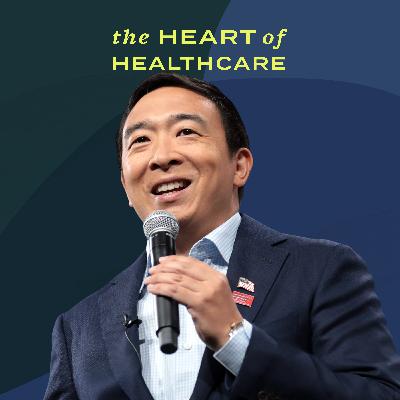
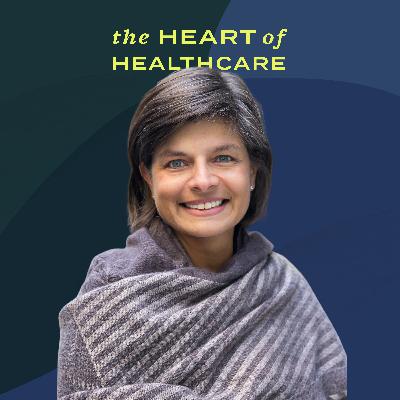
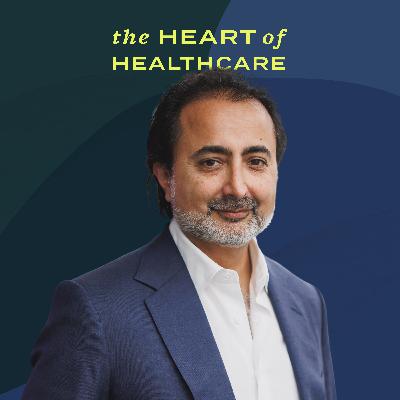
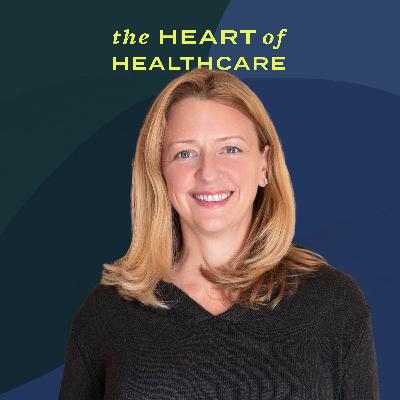
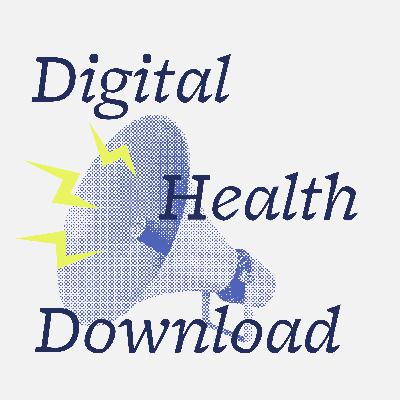
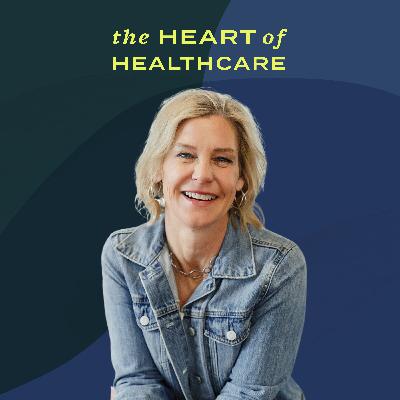
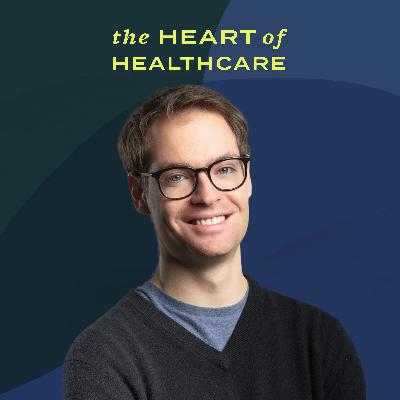
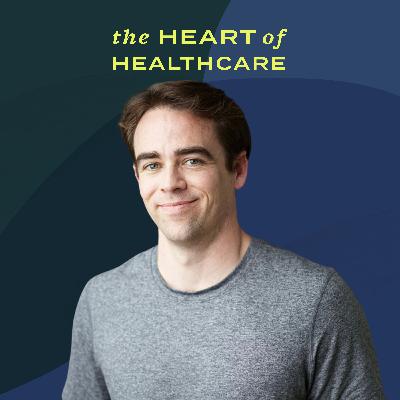

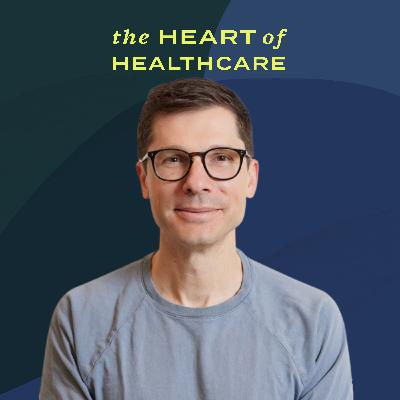
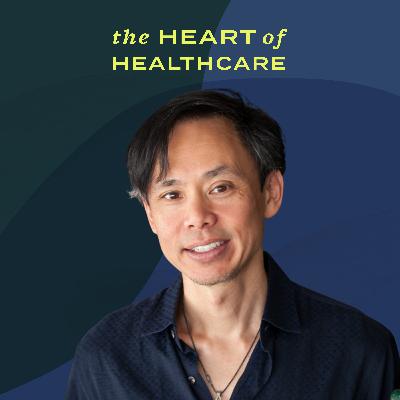
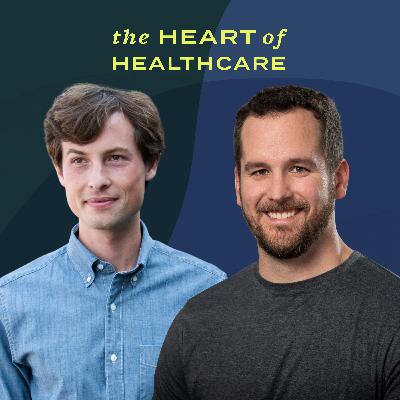
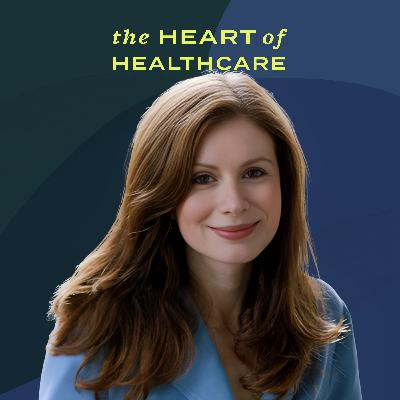
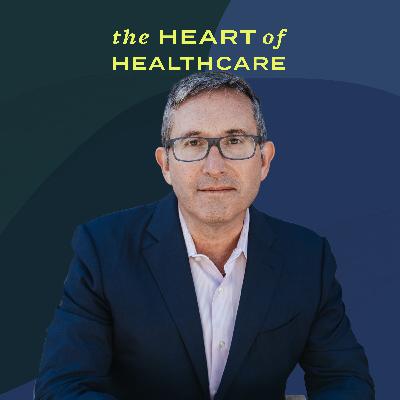
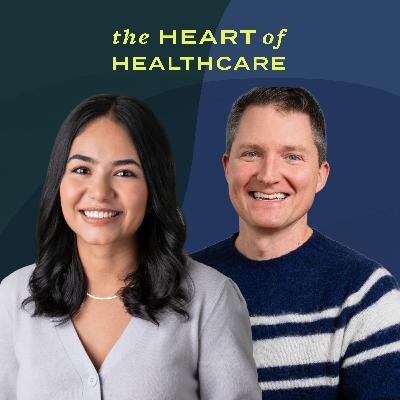
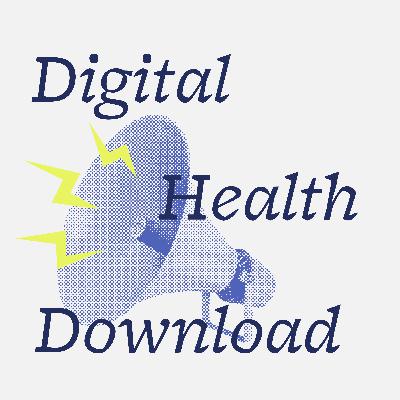
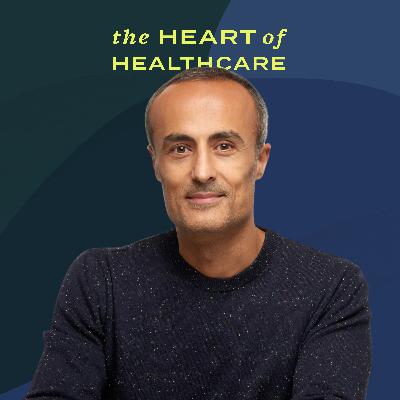
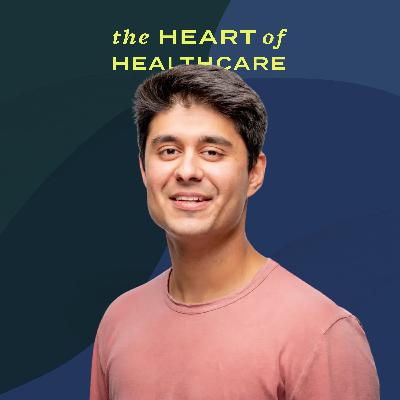



It's definitely an excellent episode of your awesome podcast. thank you for sharing it. I'd like to know how can I find the script? I mean if this could be possible for non native speakers, it would be great! anyway, keep up the good work 💪🧠